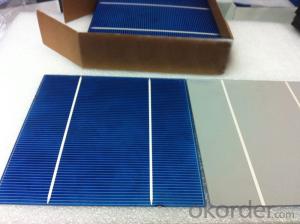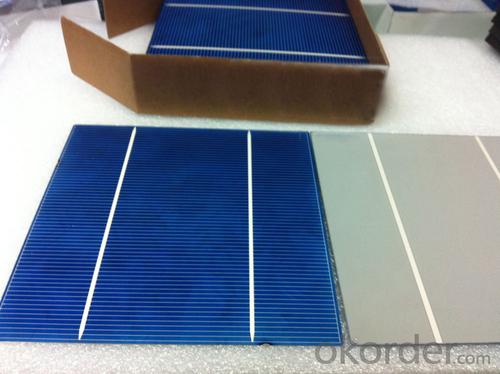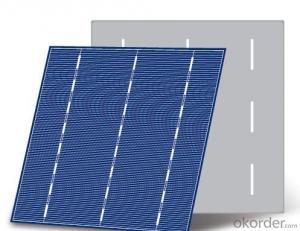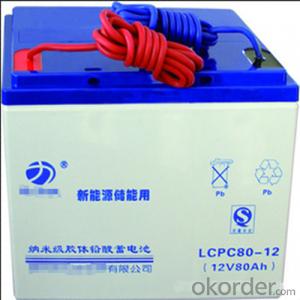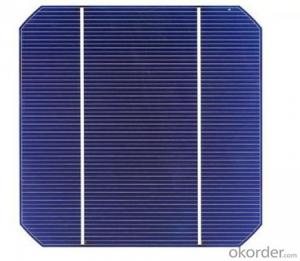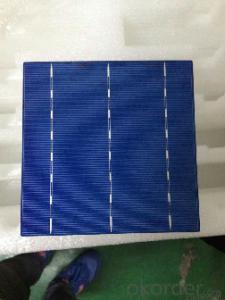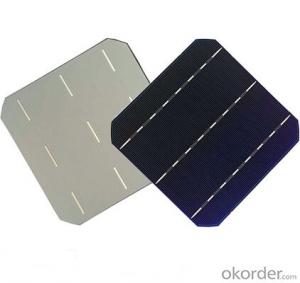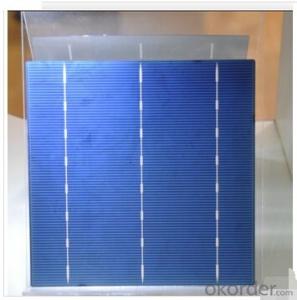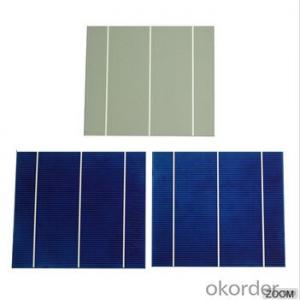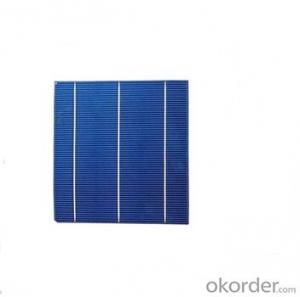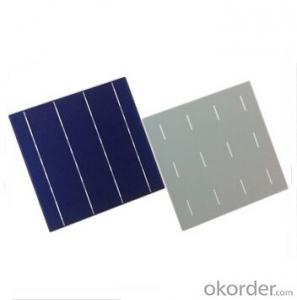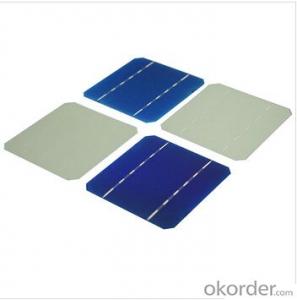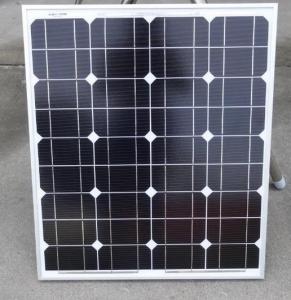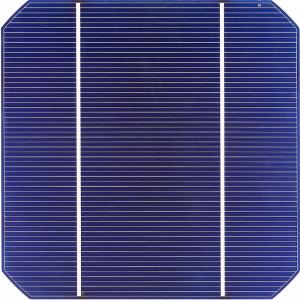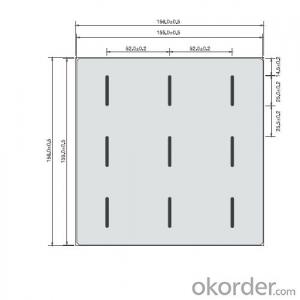Multilayer High Quality Solar Cells Poly-13% Effy
- Loading Port:
- China Main Port
- Payment Terms:
- TT OR LC
- Min Order Qty:
- -
- Supply Capability:
- -
OKorder Service Pledge
Quality Product, Order Online Tracking, Timely Delivery
OKorder Financial Service
Credit Rating, Credit Services, Credit Purchasing
You Might Also Like
Specifications
1. High efficiency and High power.
2. Long-term electrical stability.
3. Lowest price and Fastest delivery.
4. Good quality.
Advantage:
1. High efficiency and High power.
2. Long-term electrical stability.
3. Lowest price and Fastest delivery.
4. Good quality and good service.
5.Bulk supply
6. Good Warranty
7.Big Sale
8.Made in Taiwan/Germany etc for high quality
9.More than 35 years on the lifetime.
10 DHL/Fedex/UPS/TNT/EMS etc
11 No anti-dumping tax
- Q: Can solar cells be used in space heating systems?
- Yes, solar cells can be used in space heating systems. Solar thermal systems can collect and convert sunlight into heat energy, which can then be used to heat spaces. Solar panels can also be used to generate electricity, which can power electric space heaters.
- Q: What is the impact of electromagnetic interference on solar cell performance?
- Electromagnetic interference can have a significant impact on solar cell performance. It can disrupt the normal operation of solar cells by introducing unwanted electrical signals that interfere with the proper functioning of the cells. This interference can lead to decreased efficiency and power output of the solar panels, as well as potential damage to the cells themselves. Therefore, it is crucial to minimize electromagnetic interference to ensure optimal performance and longevity of solar cells.
- Q: Can solar cells be used to power remote data collection systems?
- Yes, solar cells can be used to power remote data collection systems. Solar cells convert sunlight into electricity, providing a sustainable and reliable source of power for off-grid locations. This makes them ideal for powering remote data collection systems, allowing continuous operation without the need for a grid connection or frequent battery replacements.
- Q: What is the impact of tree shading on solar cell efficiency?
- Tree shading can have a significant impact on solar cell efficiency. When trees cast shadows on solar panels, they reduce the amount of sunlight reaching the cells, resulting in decreased electricity generation. The shading not only reduces the overall energy output but also causes uneven distribution of light, leading to hotspots on the panels, which can further decrease their efficiency and lifespan. Therefore, it is important to consider tree placement and regularly trim branches to maximize solar cell efficiency.
- Q: What is the role of surge suppressors in solar cell systems?
- The role of surge suppressors in solar cell systems is to protect the system from voltage surges or spikes that can potentially damage the solar panels, inverters, or other components. These surge suppressors help regulate and stabilize the electrical flow by diverting excess voltage to ground, ensuring the smooth operation and longevity of the solar cell system.
- Q: What is the impact of snow accumulation on solar cells?
- Snow accumulation on solar cells can have a negative impact on their performance and efficiency. When snow covers the surface of the solar panels, it prevents sunlight from reaching the cells, thereby reducing their ability to generate electricity. Additionally, the weight of the accumulated snow poses a risk of damaging the delicate solar cells or the entire panel structure. Therefore, it is important to regularly clear the snow from solar panels to ensure optimal energy production and prevent any potential damage.
- Q: Can solar cells be used in off-grid applications?
- Yes, solar cells can definitely be used in off-grid applications. Off-grid systems rely on renewable energy sources like solar power to generate electricity independently from the main power grid. Solar cells, also known as photovoltaic cells, convert sunlight directly into electricity and can be used to power various off-grid applications such as remote cabins, boats, or even outdoor lighting systems. The ability of solar cells to operate without the need for a connected power grid makes them ideal for off-grid scenarios where access to electricity is limited or unreliable.
- Q: Can solar cells be used for powering military bases?
- Yes, solar cells can definitely be used for powering military bases. Solar energy is a reliable and sustainable source of power that can be harnessed through the use of solar cells. Implementing solar panels on military bases can help reduce dependence on traditional fossil fuel-based energy sources, increase energy security, and provide a more environmentally friendly and cost-effective solution for powering military operations.
- Q: Can solar cells be used in agricultural irrigation systems?
- Yes, solar cells can be used in agricultural irrigation systems. Solar-powered irrigation systems use solar panels to convert sunlight into electricity, which can then power pumps or other irrigation components. This renewable energy source can help reduce reliance on fossil fuels and provide a sustainable solution for irrigation in agricultural settings.
- Q: Can solar cells be used for powering agricultural equipment?
- Yes, solar cells can be used for powering agricultural equipment. Solar panels can convert sunlight into electricity, which can then be used to power various agricultural machinery such as irrigation systems, pumps, electric fences, and even tractors or vehicles. Using solar power for agricultural equipment can help reduce reliance on fossil fuels, lower operational costs, and promote sustainable farming practices.
Send your message to us
Multilayer High Quality Solar Cells Poly-13% Effy
- Loading Port:
- China Main Port
- Payment Terms:
- TT OR LC
- Min Order Qty:
- -
- Supply Capability:
- -
OKorder Service Pledge
Quality Product, Order Online Tracking, Timely Delivery
OKorder Financial Service
Credit Rating, Credit Services, Credit Purchasing
Similar products
Hot products
Hot Searches
Related keywords
